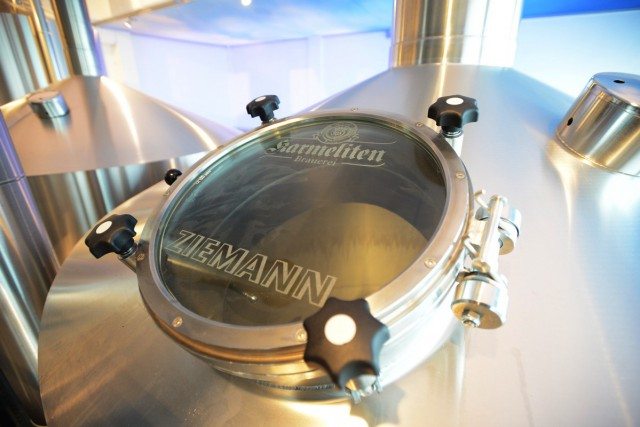Within its initiative Energy Efficiency, the German Energy Agency dena has awarded the Karmeliten Brauerei Karl Sturm with the label ‘Best Practice in Energy Efficiency’ in the category ‘plant-related projects’.
With this award, dena honoured the sustainable energy savings, which have been achieved with the new brewhouse of the private brewery from Straubing, Germany.
This new brewhouse was built in cooperation with Ziemann Holvrieka, Ludwigsburg in 2013.
Due to the efficient brewhouse work with the Colibri, Lotus and Shark, the gravity conveyance due to the cascade construction as well as numerous other energy-optimized measures, the heat energy consumption decreased by more than 40% compared to the old brewhouse.
The required electrical energy decreased by about 10%, while the yield increased by about 3%.
Energy-autonomous brewery
The construction of the new brewhouse was the first step towards an ‘energy-autonomous brewery’. This concept was also developed with Ziemann Holvrieka and won the ‘Federal Award 2013 for Outstanding Innovative Craft Achievement’.
The aim is to obtain the total primary energy of the Karmeliten Brauerei almost completely from renewable energy sources.
For this purpose, various actions and measures shall be implemented within the next 1.5 years. In March, for example, a biogas-driven micro gas turbine shall be installed for the electricity and heat generation.
In addition, the solar-generated process heat will be used for process steps with high heating temperatures, using Fresnel collectors.
An absorption-type refrigeration system, with propane as a natural refrigerant, will additionally convert the low process heat, recovered from the solar thermal process, into process cold.
Moreover, it is planned to use various storage facilities in order to buffer the excess heat and cold and to provide this energy in case of need.
Another measure is to recover the process heat and to reuse it for the bottle cleaning, the brewing water heating and the heating of the building.
Highly contaminated waste water shall be converted into biogas, which, in turn, shall be used within the brewery.
With this plan, a total of about 1.4 million kilowatt hours of primary energy can be saved. Compared to the existing plant, this corresponds to a reduction potential of more than 30%. Thus, the CO2 emissions can be reduced by approximately 900 tons per year.
The Federal Environment Ministry supports this project with more than €1 million (US$1.11 million) from the Environment Innovation Programme.










